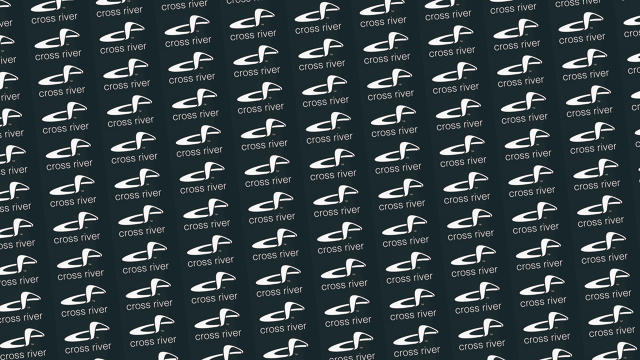5 Fintech Startups To Watch In 2017
For fintech, 2016 was a year of reckoning. Scandals and layoffs killed industry buzz, and deal activity took a mid-year nosedive. Regulatory uncertainty in the U.S. loomed large, as did Brexit. For some companies, the environment led to a greater reliance on partnerships with big banks, with potential implications for the types of exits that investors could realize. For others, 2016 became a time to retrench and refocus.
Those efforts should start to pay off in 2017. Here, we highlight five U.S.-based fintech startups with growing traction that exemplify broader industry trends.
Metromile
After flying under the radar for its first four years of operations, San Francisco-based Metromile dropped a bombshell in September: It had quietly raised nearly $200 million in a series of unannounced investment rounds, while at the same time positioning itself to grow nationwide as an independent auto insurer. Pay-per-mile auto insurance, the company’s core offering, is now poised to go mainstream.
For low-mileage drivers, Metromile’s typical fees—$35 per month, plus 5¢ per mile—can lead to significant savings. For higher-mileage drivers, the company is experimenting with partnerships. For example, it has teamed up with Uber to offer a specialized plan that encompasses personal and commercial coverage.
Insurance investors say Metromile has become an important proof point for the industry’s hottest topic: Measuring observable behavior in order to get more granular about risk. “It’s all about data and creating a customized risk profile for yourself,” says Nabil Meralli, partner at InsurTech Venture Partners, a new London-based fund.
Watch out for Metromile, and “insurtech” more generally, in the year ahead.

Cadre
Real estate technology moved into the spotlight in 2016, with blockbuster rounds going to Compass ($75 million) and OpenDoor ($210 million). In parallel, crowdfunding real estate platforms have been proving their mettle—bootstrapped Sharestates, for example, recently passed $230 million in funded projects.
Cadre, as its name implies, is less interested in crowdfunding and more interested in capturing the large pools of capital required to fund major commercial deals. Cadre CEO Ryan Williams is just 28 (and a Harvard-educated serial entrepreneur), but he has the ear of some of finance and real estate’s top power brokers and a growing team of star players operating out of the startup’s headquarters, a loft-style office in Soho. (The digs come courtesy of Cadre investors Josh and Jared Kushner; family firm Kushner Properties owns Soho’s Puck Building, where it has installed Cadre and fellow Thrive Capital portfolio company Oscar Health.) Real estate heavyweight Mike Fascitelli is on Cadre’s investment committee, and Andrew Borovsky, a veteran of Square and Apple, runs product.
“To date, our investors on the platform have been family offices, high net worth [individuals], pensions, endowments,” Williams says. “We think we can build a strong brand and sense of loyalty, almost social proof, at the top of the investing pyramid.”
So far, the company has closed on more than $500 million in inventory.
Stash
Betterment, RobinHood, Wealthfront, Wise Banyan: There is no shortage of options today for managing your investments via smartphone. Even established players like Charles Schwab are upping their game with improved mobile apps. Yet this past year New York-based Stash managed to cut through the noise in this crowded market and win more than 300,000 users.
The company’s growth “has been the fastest that we’ve seen,” says Andrew McCormack, founding partner at Valar Ventures, which led the $25 million Series B that Stash announced in mid-December. “They have been growing at an incredible rate with a very low cost of acquisition because there’s such viral engagement.” Stash is proof positive that the old-fashioned email newsletter can still pack a marketing punch.
Whether the company’s high engagement leads to equivalent growth in assets under management remains to be seen. Stash’s strength lies in its “start small, think big” ethos; users can invest as little as $5, allocated according to their beliefs and values. The catchy, curated portfolio options include “Roll With Buffett” and “Social Media Mania.” At the end of the day, Stash is Blackrock ETFs, rebranded for nest egg newbies. But there might just be a business in that.
Tilt
Is Venmo ripe for disruption, too? That is the thinking behind Tilt, which bills itself as a “social network built around money” and claims to be the fastest-growing app on college campuses. From Friday night pizza with roommates to a sorority-sponsored fundraiser, Tilt brings the functionality of peer-to-peer payments, crowdfunding, and Eventbrite under one roof.
“It’s the easiest way to collect, fundraise, and sell with your community,” says cofounder and CEO James Beshara. So far, he and his team have raised over $62 million in venture capital. “We don’t do any curation. We don’t have any featured list. The only thing that’s a push to you is through social relations with the people you care about.”
Tilt charges a fee for commerce—selling merchandise or tickets, for example. But other transactions are free. When rival Venmo adds the functionality to support merchants, the two mobile platforms will be going head-to-head as they compete for the influential 18-24 demographic.

Cross River Bank
Cross River Bank made headlines (and induced some head scratching) when it announced $28 million in venture capital funding last fall. What did Silicon Valley see in the Fort Lee, New Jersey-based community bank? As it turns out, fintech’s self-proclaimed disruptors need access to the banking system’s old-fashioned infrastructure in order to move and deposit money, originate loans, and more. And Cross River, seeing a market opportunity, had carved out a valuable niche serving companies like Affirm, Google Wallet, and Rocket Loans.
But fintech regulations are due for big changes in 2017, and Cross River may find itself at a sudden disadvantage. The Office of the Comptroller of the Currency (OCC), the nation’s top bank regulator, announced plans for a new type of license on December 2. Under the special charter, fintech startups would be able to grow more quickly nationwide by sidestepping the arduous process of navigating state licenses and rules. They would also subject themselves to greater scrutiny on the part of the OCC with regard to consumer protections, capital controls, and more.
Cross River CEO Gilles Gade maintains that there are opportunities for the bank to continue to serve its startup customers, even under the new regulatory regime, by teaching them about compliance. But it’s unclear whether that strategy will deliver the kinds of returns that VCs like Andreessen Horowitz expect.
Related Video: This Startup Sells You Meal Plans Based On Your Nutrition Type
Fast Company , Read Full Story
(76)












